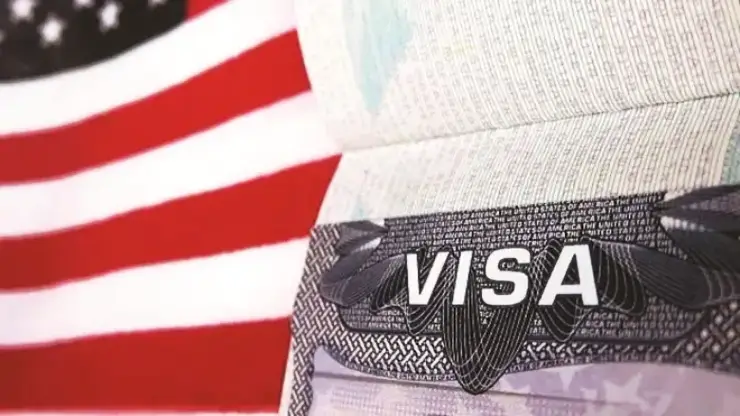Gambiaj.com – (Banjul, The Gambia) – In a move that reflects the renewed assertiveness of the Trump administration on immigration policy, the U.S. Embassy in Banjul has announced that applicants for student (F and M) and exchange visitor (J) visas must now set their social media accounts to “public” as part of their vetting process.
The new requirement takes effect immediately and is being applied in tandem with a presidential proclamation suspending or limiting entry and visa issuance to nationals of unspecified countries deemed security threats.
The embassy stated that the directive is in line with the June 9, 2025, Presidential Proclamation on Restricting the Entry of Foreign Nationals to Protect the United States from Foreign Terrorists and Other National Security and Public Safety Threats.
However, while the public rationale emphasizes terrorism and safety concerns, critics argue that the measure forms part of a larger ideological and political push by President Donald Trump to control immigration through indirect yet exclusionary means.
A Continuation of the Trump Doctrine on Immigration
Since returning to office, President Trump has signaled a return to his first-term playbook: aggressive immigration restriction, enhanced vetting, and a nationalist reorientation of U.S. immigration policy.
This latest policy targeting students and exchange visitors—historically considered “soft diplomacy” bridges between the U.S. and the rest of the world—marks a significant escalation in that agenda.
Student visas have not been spared from the administration’s broader skepticism toward immigration. During Trump’s first term, visa rejections for African students spiked, and institutions of higher learning across the United States reported drops in international enrollment.
Many universities warned of the long-term impact such restrictions could have on American academic competitiveness and soft power abroad. These concerns are resurfacing as Trump’s second administration doubles down on surveillance-driven screening.
Social Media: Security Measure or Discriminatory Filter?
The embassy’s instruction that visa applicants make their social media accounts public is officially framed as a tool to help establish applicants’ identity and admissibility. Yet, critics of the policy—both in the U.S. and abroad—argue it amounts to ideological profiling.
“This is not just about vetting for legitimate threats,” says a U.S.-based immigration attorney who spoke on condition of anonymity. “This is about mining for red flags that could be entirely subjective—opinions, associations, even religious or political commentary. It’s a slippery slope.”
Civil liberties groups in the U.S., including the American Civil Liberties Union (ACLU), have long opposed social media vetting as an invasion of privacy and an ineffective tool for combating terrorism. They warn that such policies may disproportionately target individuals from Muslim-majority and African countries—echoing concerns raised during the enforcement of the 2017 “Muslim Ban.”
Implications for Gambian Students
The Gambia, though not officially named in the list of countries affected by the new proclamation, may nonetheless see its students face delays, scrutiny, or outright visa denials.
The country has historically had strong educational ties with the United States, with dozens of Gambian students enrolling in U.S. institutions annually under various academic and exchange programs.
For many aspiring students, the new policy could be dissuasive. “Making all our social media public feels invasive,” said a recent university graduate in Banjul who planned to apply for a master’s program in the U.S. this fall. “We use social media for personal expression. Now it’s being turned into a visa test.”
Moreover, the requirement risks punishing those unfamiliar with the technological nuances of privacy settings or those who, for cultural or personal reasons, may not use social media at all—groups already vulnerable in the opaque world of visa adjudication.
A Strategic Shift in U.S. Engagement?
Observers say the implications of these policies go beyond individual visa cases. They represent a shift in how the United States sees the role of international students—not as future allies and ambassadors, but as potential threats.
The Trump administration has increasingly questioned the value of educational exchange, especially when tied to countries seen as geopolitical rivals or unstable regions.
What remains unclear is whether this policy will achieve its stated security aims or instead erode the very educational and cultural connections that have long formed the backbone of America’s international partnerships.
For now, applicants are advised to comply with the requirements and consult [travel.state.gov](https://travel.state.gov) for further information. But the wider question remains: Is the U.S. closing its doors in the name of security—or drawing new borders along ideological lines.










